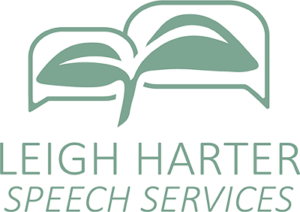Updated: Nov 16, 2019
All too frequent words I hear from clients, their families, and even medical professionals. This is a short description of the many hats a speech-language pathologist wears.
Common Myths about Speech-Language Pathologists:
- “You’re the reading teacher?”
- “I don’t hear any speech impediment?”
- “But their speech is clear. I don’t understand why they need to see you?”
- “You only work with kids.”
- Treatment is just “playtime.”
- “I’ll wait to start treatment. They will grow out of it.”
First and foremost, the education requirements to be a certified Speech-Language Pathologist (SLP) require a masters degree, followed by 9+ months of closely monitored mentorship called your clinical fellowship (CF). While all masters programs slightly vary, they often require students to take courses in the following:
- Feeding and swallowing (Dysphagia)
- Adult & pediatric language assessment and intervention
- Research principles & applications
- Neuroanatomy & neurophysiology of communication
- Social communication
- Motor speech disorders
- Articulation & phonological disorders
- Aural rehabilitation
- Clinical instrumentation
- Voice/resonance disorders
- Fluency disorders
- AAC
- Counseling
In addition to the above curriculum, we are required to log clinical hours every semester, summer included, with a variety of populations, disorders, and cultures. Upon completion, we have to pass a complex PRAXIS test, which measures the academic skills and subject-specific content knowledge warranted for practicing.
It is so critical for the client, family, caregivers, and medical professionals to understand SLP’s scope of practice to reduce anxiety or stress upon the first visit, come prepared with appropriate questions and documentation related to deficits, and to make appropriate referrals with the healthcare field.
Populations we can service include children and adults with:
- Voice disorders
- A laryngectomy
- Feeding disorders
- Swallowing disorders (dysphagia)
- Accent reduction/modification
- Cleft palate or lip
- Syndromes (Down, Asperger’s, craniofacial)
- Neurologic disorders (CP)
- Neurodegenerative diseases (Alzheimers, dementia, ALS)
- CVA
Cognitive-linguistic processes we evaluation and treat include:
- Long- and short-term memory
- Attention (alternating, divided, sustained)
- Swallowing
- Feeding (aversions)
- Auditory & verbal comprehension
- Written & spoken language
- Breath support
- Motor speech
- Executive functioning (organization, planning, initiation, self-regulation)
- Reading comprehension
- Pragmatics (verbal & non-verbal social skills)
- Fluency (stuttering & cluttering)
- Articulation & phonology
- Problem-solving & reasoning
- Voice (loudness, pitch, intonation)
Work sites include:
- Hospitals
- NICU
- Skilled nursing facilities
- Inpatient & outpatient rehabilitation centers
- Public & private schools
- Private practices
- Tele-therapy
- Home health agencies
- Colleges & universities
- State & government agencies
- Adult day centers
- Centers for developmental disabilities
- Research facilities
Team members we can and frequently work with include:
- Teachers
- ENT
- Audiologists
- Physical & occupational therapists
- Social Worker
- Case manager
- Psychologist
- Nurses & physicians
- Caregivers, families & friends
- Dietitians





